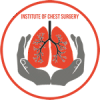Bronchiectasis is a chronic respiratory condition characterized by the widening and damage of the airways in the lungs, leading to frequent infections and difficulty in clearing mucus. While medical management plays a crucial role in treating bronchiectasis, many individuals wonder if there are any complementary home remedies or natural treatments that can provide additional relief and support. In this blog post, we will explore various home remedies and natural approaches that can complement medical treatments and enhance the overall well-being of individuals with bronchiectasis.
1. Maintaining Good Respiratory Hygiene
Practicing good respiratory hygiene is vital for individuals with bronchiectasis. This includes:
- Avoiding Smoking and Secondhand Smoke: Smoking can further damage the lungs and exacerbate bronchiectasis symptoms. Similarly, exposure to secondhand smoke should be minimized.
- Avoiding Environmental Irritants: Reducing exposure to air pollution, strong odors, and chemicals can help prevent irritation to the airways.
- Maintaining Indoor Air Quality: Regularly cleaning and ventilating living spaces can minimize allergens and respiratory irritants.
2. Airway Clearance Techniques
Airway clearance techniques are an essential part of managing bronchiectasis. While there are medical devices available, some natural techniques can be performed at home, such as:
- Postural Drainage: Changing positions to facilitate the drainage of mucus from different lung segments.
- Breathing Exercises: Techniques like deep breathing and pursed-lip breathing can help improve lung function and support mucus clearance.
3. Steam Inhalation
Steam inhalation can help moisturize the airways and ease breathing. Adding a few drops of eucalyptus or tea tree oil to hot water and inhaling the steam can provide temporary relief from bronchiectasis symptoms.
4. Hydration
Staying well-hydrated is crucial for individuals with bronchiectasis. Drinking plenty of fluids can help maintain the thin consistency of mucus, making it easier to clear from the airways.
5. Saltwater Gargles
Gargling with warm saltwater can help soothe a sore throat and alleviate throat irritation caused by persistent coughing.
6. Nutrition and Diet
A healthy diet can play a significant role in supporting the immune system and overall well-being of individuals with bronchiectasis. Focus on:
- Anti-inflammatory Foods: Incorporate foods rich in antioxidants, such as fruits and vegetables, to reduce inflammation in the airways.
- Omega-3 Fatty Acids: Foods like fatty fish, flaxseeds, and walnuts contain omega-3 fatty acids, which have anti-inflammatory properties.
- Probiotics: Consuming probiotic-rich foods or supplements may promote gut health, which can positively impact the immune system.
7. Herbal Remedies
Certain herbs have been traditionally used for respiratory support and may provide additional relief for bronchiectasis symptoms. However, it’s essential to consult with a healthcare professional before using any herbal remedies, as they can interact with medications or have adverse effects.
- Eucalyptus: Eucalyptus leaves contain compounds that can help open the airways and reduce coughing.
- Ginger: Ginger has anti-inflammatory properties and may help soothe the respiratory system.
- Licorice Root: Licorice root is known for its potential anti-inflammatory and expectorant properties.
8. Exercise and Physical Activity
Engaging in regular physical activity can improve lung function, strengthen respiratory muscles, and enhance overall fitness. Low-impact exercises like walking, swimming, and yoga are generally well-tolerated by individuals with bronchiectasis.
9. Mind-Body Techniques
Stress management is essential for individuals with chronic conditions like bronchiectasis. Mind-body techniques such as meditation, deep relaxation, and mindfulness can help reduce stress and improve overall well-being.
10. Adequate Rest and Sleep
Getting enough rest and quality sleep is essential for the body’s healing and recovery processes. Ensure a comfortable sleep environment and establish a consistent sleep routine.
Conclusion
While medical management remains the primary approach for treating bronchiectasis, certain home remedies and natural treatments can provide supportive relief and enhance the overall well-being of individuals with this chronic respiratory condition. From practicing good respiratory hygiene to incorporating herbal remedies and maintaining a healthy lifestyle, these approaches can complement medical treatments and contribute to a better quality of life for those living with bronchiectasis.
However, it is crucial to remember that home remedies and natural treatments should not replace medical advice or prescribed medications. Always consult with a qualified healthcare professional before starting any new home remedy or natural treatment to ensure safety and effectiveness in managing bronchiectasis.






